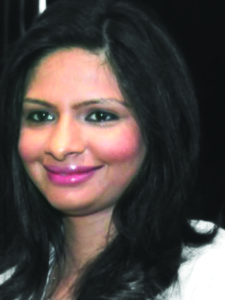Minimizing Risks
Though there are no definite causes for autism, it is advisable to avoid birth defects by taking all safeguards during pregnancy
By Dr Manisha Yadav
Autism or Autism Spectrum Disorder (ASD) is a complex disorder of growth of brain. Such disorders are illustrated in fluctuating degrees, by challenges in verbal and nonverbal correspondence, social interaction and redundant practices. According to a research, all autism imbalances were converted into single diagnosis of ASD. Actually, they were perceived as particular subtypes that include childhood disintegrative disorder, autistic disorder, pervasive developmental disorder and asperger syndrome.
ASD can be related with challenges in motor coordination, intellectual disability and physical wellbeing issues, like gastrointestinal and sleep disturbances. A few persons with ASD excel in music, maths, visual skills and art. It seems to develop its roots in early phases of brain development. But, the most evident indications and symptoms of autism tend to rise somewhere around 2 and 3 years of age. Autism responds to subsidizing research on robust strategies for earlier diagnosis, since early intervention with proven behavioral treatments can improve the outcomes.
Autism is common
Autism has increased by ten times in predominance in last 40 years. According to latest research, autism is four to five times more basic among boys as compared to the girls.
What Causes Autism?
In the recent past, the only answer to this question was – no idea. However, research is currently conveying the answers. Most importantly, we now realize that there is no particular reason for autism as there are several types of autism. Throughout the most recent five years, researchers have recognized various uncommon changes, or transformations in genes that are connected to it. Most of its instances appear to be caused by a blend of autism risk genes and environmental factors affecting the early mental health.
In the wake of hereditary predisposition to autism, various environmental or nongenetic stresses seem to further build the child’s risk. The clearest confirmation of such factors includes events before and amid the birth. They incorporate progressed parental age at time of origination, maternal disease amid pregnancy and certain complications amid birth, especially those including times of oxygen deprivation to the infant’s mind. It is imperative to remember that these elements are not directly responsible to cause autism. But combined with hereditary risk components, they compound the problem.
What signs suggest that someone has an ASD?
Basically, ASD is distinguished before a child begins school and most of them are currently analyzed from an extremely young age. Generally, guardians, a childcare worker or health professional notice something strange in the child’s behaviour. Illustrations incorporate inability to react with proper social practices, for example, smiles or other facial expressions, poor dialect advancement, and absence of different types of correspondence, for example, indicating and waving. A few kids are not even diagnosed until they are at school and a diagnosis may happen in late adulthood or adolescence. Those diagnosed at an older age are more functioning and have less serious side effects. Nevertheless, they encounter correspondence, social and behaviour difficulties.
How to prevent Autism?
Despite the fact that the cause for autism is not known, it is the opinion of numerous researchers that genetics is liable for 90% of the risk of a child developing autism. The uncommon cases might be caused by chemical exposure and different agents that cause birth defects. To avert the danger of having a kid with autism, follow the below-given tips:
Routine checkup, healthy diet, yoga and exercise and take all suggested minerals, vitamins and supplements at the time of pregnancy.
Try not to take drugs amid pregnancy unless your doctor approves; this is especially valid for some anti-seizure pharmaceuticals.
Try not to drink alcoholic beverages of any sort at the time of pregnancy.
In case, you’ve been diagnosed with celiac sickness or PKU, get treatment.
Getting vaccinated against German measles (rubella) before pregnancy can anticipate rubella-related autism.
Management of autism
Till date, Autism has no treatment. It is an intricate disorder with myriad manifestations. Early intervention can reduce difficulties related with it and strengthen the quality of life. Not even a single treatment is ideal and management requires to be modified as per the needs of the child. In majority of cases, the perfect blend of treatment techniques is more effective. Broadly, its management includes the following:
Behavioural management therapy
Cognitive behaviour therapy
Early intervention
School-based and educational therapies
Joint attention therapy
Medication treatment
Nutritional therapy
Occupational therapy
Parent-mediated therapy
Physical therapy
Social skills training and
Speech-language therapy.
(The author is Medical Practitioner, New Delhi)


